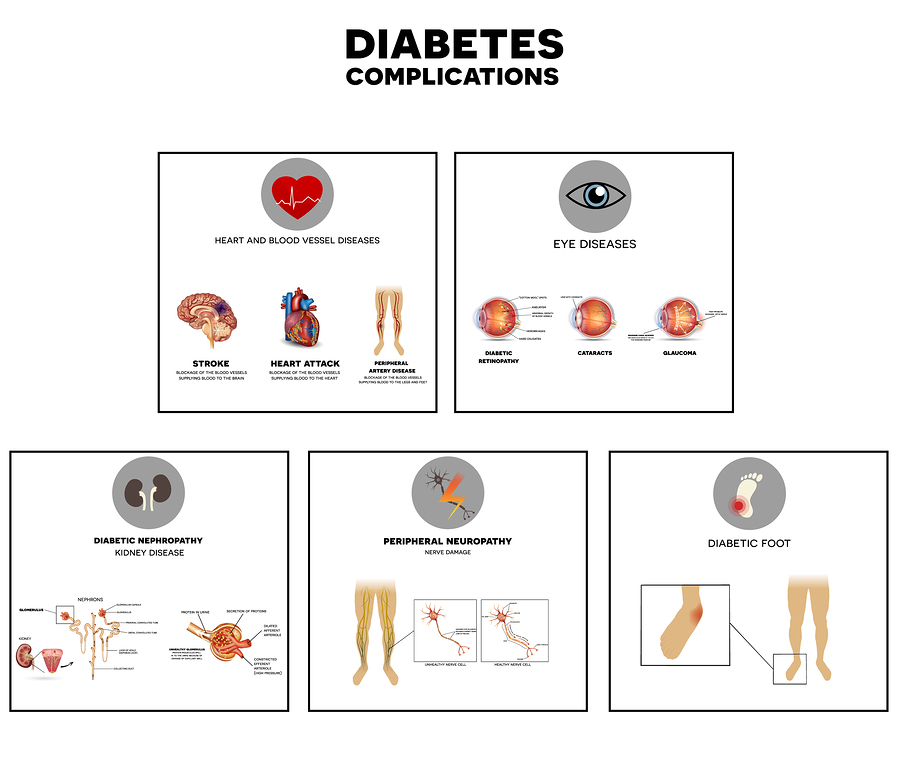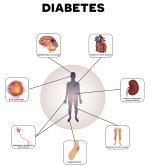Complications of Diabetes You Want to Avoid

Here are the common complications of diabetes that you want to avoid.
Diabetes is a disease caused by the body's inability to produce insulin. This inability hinders the natural process of turning glucose into energy. Since diabetes disrupts the body's normal functions, there are many complications that can occur if the disease goes untreated or in some more severe cases of the disease. If you have been diagnosed with diabetes, you will have to work closely with your healthcare provider or doctor in order to develop a plan of action that will be best for you.
You may choose to go with natural treatment or regular medications or drugs. Either way, regular exercise and a healthy diet will be a vital to reduce complications of diabetes. Once you have been diagnosed with diabetes, it is important to manage your blood sugar levels in order reduce the chance of suffering from diabetes complications.
Common Complications of Diabetes
Diabetes can cause the onset of other diseases and illnesses. Some of the diseases that can be caused by diabetes complications are even more serious than diabetes itself. Let's take a look at some of the problems that can result from diabetes:
• Heart disease - the complications of diabetes can make the risk of heart disease higher in people with diabetes.
• Neuropathy and Nerve Damage - one of the most popular complications for the diabetic is damage to the nerves connecting the spinal cord to muscles, blood vessels, skin and other organs.
• Eye complications - one of the most common symptoms of diabetes is blurred vision caused when the body takes fluid from other connecting tissues in order to compensate for the loss of insulin. Diabetics are at a higher risk of blindness.
• Skin – most individuals with diabetes suffer from some form of skin disorders. These disorders are often an indication that a person is diabetic. Skin disorders are preventable and can be treated.
• Kidney disease – in most cases, the symptoms of diabetes causes the kidneys to work harder than normal. This can prevent this the kidney from properly filtering waste products and could lead to kidney failure.
• Stroke - the complications of diabetes also place the individual at a higher risk of stroke.
• Gastroparesis - this disease usually manifest when the nerves to the stomach are severely damaged and causes the stomach to take too long to empty its contents. People who suffer from Gastroparesis usually experience heartburn, feeling full at the beginning of a meal, nausea, weight loss, vomiting undigested food, bloating, gastroesophageal reflux, loss of appetite and even spasms within the wall of the stomach.
• Feet - as a result of the nerve damage and poor blood circulation caused by diabetes, many diabetics develop problems with their feet.
• Depression - many illnesses and diseases can cause people to suffer from depression. The feeling of not having complete control over your body can often time lead people to a false sense of hopelessness and failure.
Diagnosis and Management of Diabetes
The complications of diabetes discussed above are an indication of just how vital it is to detect diabetes as early as possible. Once you know you have a problem managing your blood sugar levels, you can take steps to stabilize them and reduce the chances of developing more serious diseases and illnesses.
As soon as you are given a diagnosis of diabetes, you should start working with your doctor or healthcare provider to formulate a plan. It is commonly recognized that type 2 diabetes can be reversed, drastically reducing the risks of it causing more serious complications. Even people with type 1 diabetes will benefit greatly from modifying what they eat in order to stabilize their blood sugar levels and reduce the amount of insulin they need to use. High blood sugar levels and insulin are tremendously aging. Reducing both is the key for everyone, even prediabetes to get healthy.



New! Facebook Comments
What do you think? Share your thoughts below...